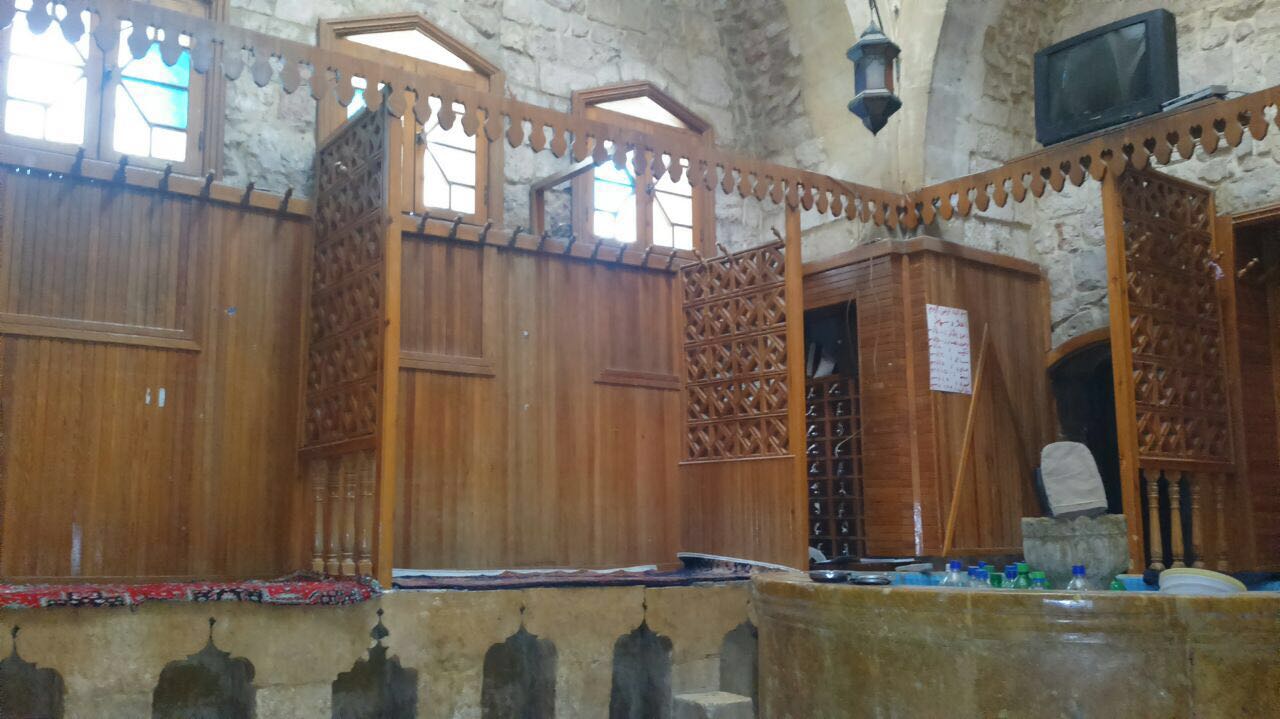Hammam al-Suq: Old Aleppean Ritual Revived Amid Ongoing Conflict

The city of Aleppo was once known for its historic markets and ancient baths. One of the traditional rituals locals had grown fond of over the years was a weekend visit to the hammam, or Turkish bath house, where they enjoyed not only the hot water but also a very special atmosphere.
However, the war forced many bath owners to shut down their businesses and look for alternative sources of income. Aleppo’s old baths are architecturally unique as they combine both beauty and brilliant engineering. In past times, these baths functioned as social centres, like today’s sports and recreational clubs.
They were places where people could socialise, as well as cleanse their bodies, and so helped keep communities together.
A Hammam in popular beliefs is regarded as a symbol of purification and cleanliness. The whole bath experience is considered blissful and heavenly. This is why the word ‘na’iman’ (heavenly) is used when addressing someone who just had a bath. Moreover, laymen believed that hammams were home to mermaids, genies, spirits and ghosts. Seeking the latter’s permission to walk into a hammam, some illiterate bathers used to say: Greetings masters, we hope you do not mind us here. And because of this belief, no one dared to sleep in a hammam. Bathers would not fall asleep there even if you promised them the treasures of the world. The famous Syrian soap opera, Hammam al-Hana, well-known across the Arab world, starring Nihad Qal’I and Durayd Lahham highlights the significance of hammams in Syrian folklore, culture and heritage.
According to historical records, 177 hammams flourished in Aleppo in the 19th century. In 1970, this number dropped down to 40 hammams and nowadays there are only 18 hammams in operation.
Despite the grinding conflict in the city of Aleppo one of these hammams has re-opened. Director of Hammam al-Salihiyah Abu Muhammad, 48, wants to bring back sparkle to this unique profession. He wants to attract the locals under the exceptional circumstances of the ongoing war. He is also mindful that the high price of fuel will force him to put his prices slightly up to avoid losses.
Abu Muhammad says: Hammam al-Salihiyah is in Al-Ma’adi neighbourhood in old Aleppo. The hammam dates back to the Ottoman rule in Syria. We decided to re-open it because civilians are struggling with severe water shortages and high fuel prices. In addition, I would really like to revive this atmosphere of affinity and friendliness usually found in abundance in hammams frequented by youths.
Speaking to Damascus Bureau Abu Muhammad says: In winter we had many customers coming. But with the start of the summer the number of customers plummeted because the majority prefer going to swimming pools. And so our business during the summer season dropped significantly. Abu Muhammad thinks his prices are very reasonable given the ridiculous price of fuel and the difficulty in securing bathing water. Abu Muhammad goes on complaining about the difficulties he often faces while trying to secure fuel which is essential to heat up the water.
Explaining the various sections of the hammam Abu Muhammad says: The hammam is divided into four sections. The exterior is a space with several benches which are used for relaxation. The same space also functions as a changing room which customers use before walking into the hammam. The middle section has a bathing pool of mild temperature. The third section is home to the steam room. This section is characterized by extremely high temperature. We recently added a hot water swimming pool and a steam room only to jazz things up.
There is also a section known locally as ‘qamim al-hammam’. This is the most vital piece of machinery which supplies the hammam with hot water and steam round the clock.
Qamim al-hammam functions by continuously pumping water at a fixed temperature and producing steam for customers to enjoy. Abu Husayn, the officer-in-charge, says: This room is known as the head of the hammam. When things run smoothly inside this room this means the entire hammam is in good shape.
Thursdays are very popular with customers since it is the end of the working week and the day preceding the week-end. Male youths usually come for a nice evening out which they spend laughing, drinking tea and smoking shisha in the exterior section. As an old practice in the Levant, men in Aleppo traditionally throw a bachelor friend a hot bath party just before his wedding day.
Mustafa, 36, is a first-time customer. He is happy about the re-opening of Hammam al-Suq in Aleppo. He says in previous years he used to be a regular customer but the war changed all that. He says visiting the hammam every week is costly these days. The cost of living has gone high and all other prices have gone up too, he says.
From a quick look around the place which is full of steam in a room full of customers you get the false impression that this city has nothing to do with the grinding conflict that has been raging for the last five years.

Hammam owner Abu Muhammad, who loves his profession and cannot see himself as doing anything else, whether now or in the future, is determined to carry on. It is an occupation he has known since he was a child. Abu Muhammad vows to keep the hammam open in the city of Aleppo which is the oldest continuously inhabited city in the world. Ironically though, it is currently the most dangerous city in the world.
Omar Yousef is the pseudonym of a Damascus Bureau contributor from Aleppo, Syria.
Read the Arabic version of this article here
